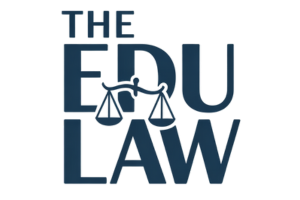Tenant rights are often overlooked until a problem escalates.
Knowing when to seek legal help is vital for avoiding costly mistakes and protecting one’s housing situation.
A landlord-tenant lawyer can provide expert guidance in disputes, ensure compliance with complex housing laws, and represent tenants when negotiations break down.
Legal counsel often becomes the difference between losing a home and safeguarding one’s rights.
1. When Facing Housing Discrimination

Experiencing discrimination based on race, religion, gender, disability, or family status violates federal and state laws under the Fair Housing Act. Discriminatory practices may appear subtle, but they often have life-altering effects for tenants.
Common examples include unfair rental pricing, differential treatment during applications, or misleading information about availability.
A lawyer provides crucial assistance in proving discrimination and holding landlords accountable. Legal professionals gather evidence, prepare witness statements, and file complaints with the Department of Housing and Urban Development (HUD) or local housing authorities.
- Collecting physical and digital evidence such as emails, texts, or recorded conversations.
- Filing official complaints with HUD or local fair housing agencies.
- Pursuing civil claims for compensation or punitive damages.
- Identifying violations of state-specific housing laws strengthens the case.
2. During an Illegal or Retaliatory Eviction

An eviction carried out without lawful cause or due process violates tenants’ rights.
Common illegal tactics include changing locks, removing belongings, shutting off water or power, or threatening immediate removal without a court order. Such actions not only breach tenancy laws but can also lead to severe emotional and financial stress.
A landlord-tenant lawyer can file motions to stop unlawful evictions and restore possession of the property.
Retaliatory evictions, where landlords punish tenants for asserting rights, such as requesting repairs or reporting violations, are equally unlawful.
- Filing emergency court motions to reverse illegal lockouts.
- Reporting violations to housing authorities or law enforcement.
- Ensuring landlords follow due process before proceeding with eviction.
- Seeking damages when tenants suffer property loss or harassment.
3. If the Landlord Ignores Proper Eviction Procedures

Each state has strict rules for eviction procedures, including written notice, service timelines, and just cause requirements.
When landlords fail to follow these protocols, tenants gain valuable defenses that can delay or dismiss eviction entirely.
A lawyer helps identify procedural mistakes, such as incomplete notices, improper delivery, or missing documentation. Even minor technical errors may have major consequences for the landlord’s case.
- Reviewing eviction notices for compliance with local and state laws.
- Challenging improper filings or invalid service of process.
- Using procedural violations to negotiate settlements or extensions.
- Representing tenants in hearings and ensuring fair treatment by the court.
4. When Living Conditions Are Unsafe or Uninhabitable

Tenants have a legal right to habitable housing, which includes essential services like heat, water, electricity, and structural safety.
When landlords fail to maintain these conditions, the home can become unsafe or even unlivable.
Mold infestations, broken heating systems, pest problems, and electrical hazards all qualify as violations of habitability standards.
Legal help ensures tenants can enforce their rights without facing retaliation. A lawyer can guide tenants through lawful remedies such as repair-and-deduct, rent withholding, or filing lawsuits for damages.
- Documenting unsafe or unsanitary conditions through photos, videos, and inspection reports.
- Sending formal notices demanding repairs or corrective action.
- Filing court motions to compel maintenance or authorize rent reduction.
- Preventing wrongful eviction during the repair or complaint process.
5. After an Injury or Illness Due to Landlord Negligence

Injuries or illnesses caused by landlord neglect, such as mold exposure, structural collapse, or broken stairs, can lead to major medical and financial burdens.
Landlords bear legal responsibility for maintaining safe living conditions under premises liability laws.
An attorney helps build a strong personal injury case by collecting evidence, organizing medical documentation, and proving negligence through expert testimony.
Compensation may include medical costs, lost wages, pain and suffering, or relocation expenses.
- Gathering detailed maintenance and inspection records.
- Consulting with building or health experts to prove unsafe conditions.
- Filing personal injury or negligence lawsuits within required deadlines.
- Negotiating settlements that fairly reflect the tenant’s losses.
6. When the Landlord Harasses or Retaliates

Landlord harassment takes many forms, including repeated unannounced visits, verbal abuse, false accusations, and failure to complete necessary repairs as punishment.
Such behavior violates tenant protection laws and creates a hostile living environment.
A lawyer helps tenants document the harassment, obtain restraining orders, and file complaints with housing authorities or civil courts.
Retaliation, such as rent increases or eviction threats after reporting violations, is also unlawful in most jurisdictions.
- Collecting written communications and witness statements.
- Filing formal complaints for harassment or retaliation.
- Seeking restraining orders or injunctions to stop the behavior.
- Pursuing monetary damages for emotional distress or losses.
7. To Recover a Wrongfully Withheld Security Deposit

Security deposits are often withheld unfairly after move-out. Some landlords claim false damages, delay refunds, or ignore the legal timeframe for returning funds.
Tenants have clear rights under state laws governing how and when deposits must be returned.
An attorney can write formal demand letters, negotiate directly with landlords, or take the case to small claims court.
Many states allow tenants to recover additional penalties for bad-faith withholding.
- Reviewing lease terms and state-specific refund laws.
- Preparing detailed itemized claims for withheld funds.
- Filing lawsuits to recover deposits and additional statutory damages.
- Ensuring landlords comply with documentation and timing requirements.
8. If Rent Increases Violate Rent Control Laws
Rent-controlled areas impose strict rules on how much landlords can raise rent each year.
Some landlords attempt to bypass these limits or falsely claim that a unit is exempt from regulation. Such actions violate local housing laws and harm tenants financially.
A lawyer can file formal challenges with rent control boards, demand reimbursement, and stop illegal rent hikes.
Tenants may also be entitled to refunds for overpaid rent and penalties against the landlord.
- Reviewing lease agreements and rent control regulations.
- Gathering proof of rent overcharges or false exemption claims.
- Filing complaints with city housing departments or rent boards.
- Pursuing back payments and legal fees in court.
9. When Lease Terms Are Unfair or Illegally Enforced

Some lease agreements contain clauses that are unenforceable or violate housing laws, such as waiving landlord liability or allowing illegal access to the property.
Mid-lease changes to terms without tenant consent are also unlawful.
Consulting a lawyer before signing or during disputes helps identify and correct such issues early.
Legal experts can review, negotiate, and, if necessary, challenge unlawful provisions in court.
- Reviewing and analyzing lease clauses for legality and fairness.
- Negotiating modifications to problematic terms before signing.
- Challenging illegal clauses or mid-lease changes in court.
- Protecting tenants against retaliation for questioning terms.
10. When Preparing for or Appearing in Court

Court proceedings involving housing disputes are often complex, with strict filing rules, evidence standards, and procedural requirements.
Tenants representing themselves risk losing cases due to technical mistakes, even when the law is on their side.
An attorney provides strategic support, helps prepare all documentation, and represents tenants during hearings or trials.
Legal counsel can also negotiate settlements or payment plans that help avoid court altogether.
- Building strong defenses with properly organized evidence.
- Cross-examining witnesses and presenting legal arguments.
- Ensuring adherence to procedural timelines and rules.
- Negotiating favorable resolutions before judgment.
Note: Before you decide to move out while under court-ordered supervision, it’s important to understand what you can and cannot do. Can you move while on probation? It’s one of the key questions many clients ask and one that should be addressed early with proper legal guidance.
Summary
Landlord-tenant conflicts often escalate quickly without professional help.
Hiring a qualified attorney at the right moment safeguards tenants’ rights, minimizes financial loss, and brings peace of mind during stressful disputes.
Awareness and prompt legal action often determine whether a tenant maintains stability or faces unnecessary hardship.
Knowing when to call a lawyer ensures protection, fairness, and the confidence to stand up for one’s housing rights.

